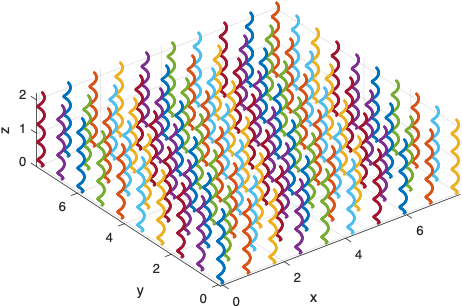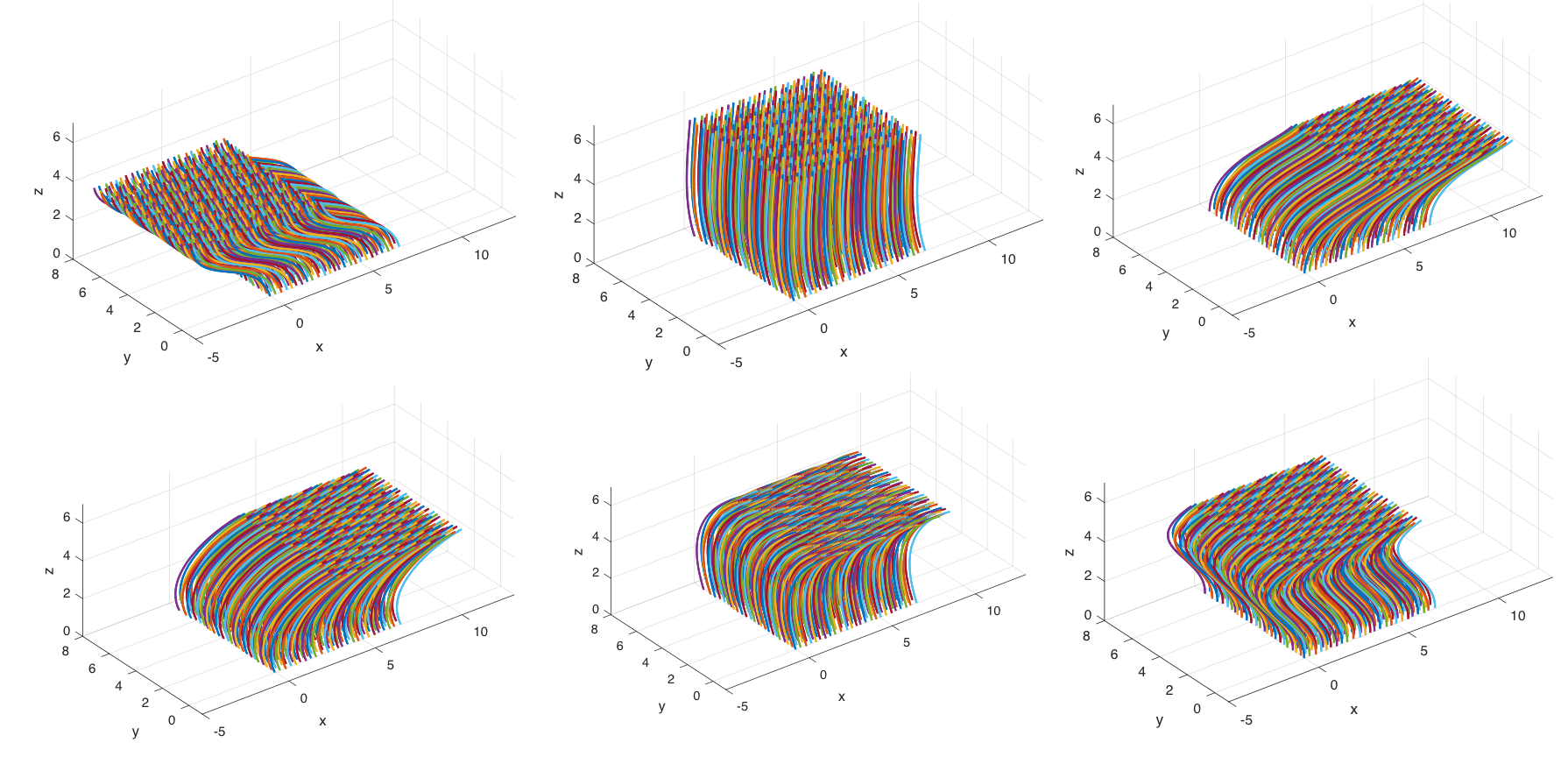NSF Grant Funds Computational Simulation of Bio-Inspired Fluids
Computing resources grant from XSEDE

Philip T. Church Postdoctoral Fellow Weifan Liu and Professor Minghao Rostami, from the Department of Mathematics, have received a grant for computing resources from the National Science Foundation’s eXtreme Science and Engineering Discovery Environment (XSEDE). This one-year award allows for 50,000 core hours of high-performance computing and data resources in support of bio-inspired fluids research.
The award will allow Liu and Rostami to perform large-scale simulations of the fluid flow induced by microorganisms - which include bacteria, cilia, sperm and algae - swimming collectively. For example, sperm swim both competitively and collaboratively to reach the egg, and densely packed cilia in the airways beat rhythmically to propel mucus and foreign particles out of the lung. The simulation of these phenomena can be computationally intensive, especially when the number of swimmers is large.

Liu and Rostami have been developing efficient numerical methods for calculating the fluid flow surrounding a large number of swimming microorganisms. These fast methods together with the newly awarded computing resources will allow them to reproduce computationally the collective behaviors of micro-swimmers observed in experiments, such as the formation of sperm “trains” and bacteria swarming. This research could help shed new light on how micro-swimmers such as sperm and cilia collectively perform various physiological functions inside the human body; it could also inform the construction of micro- and nano-robots that swarm to collaborate on processes like fertilization and drug and cell delivery in the human body.
The eXtreme Science and Engineering Discovery Environment (XSEDE) is an NSF-funded virtual organization that integrates and coordinates the sharing of advanced digital services - including supercomputers and high-end visualization and data analysis resources - with researchers nationally to support science.
